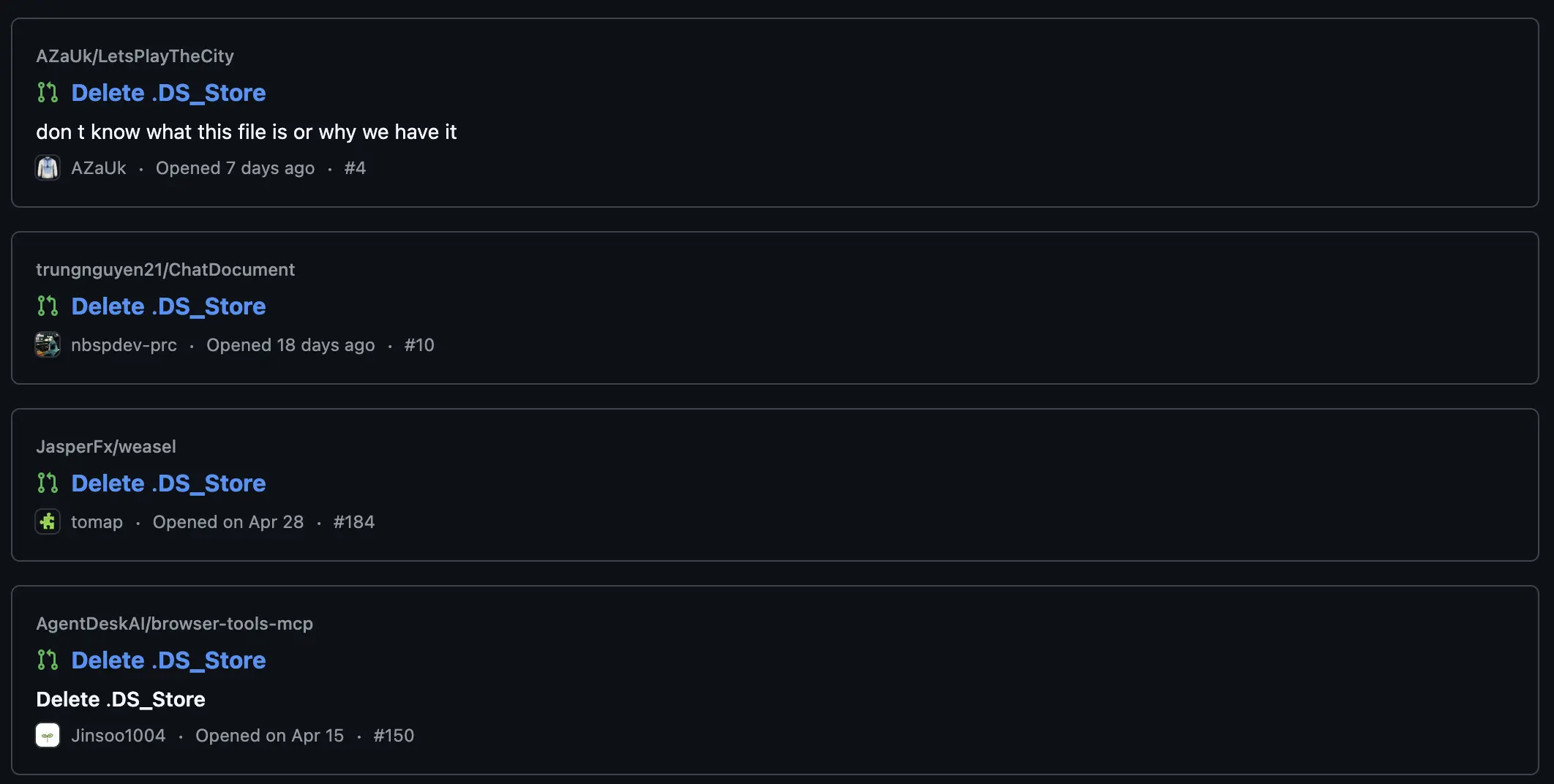You just started a new project. You ran cargo init, poetry init and
go mod init.
Those commands created the necessary files to work, it also added the following lines to your .gitignore:
target
__pycache__
bin
All great. You continue implementing features, and when the time comes, you publish your project to your Git hosting platform of choice.
People start to get interested in your project. One even decides that he's going to implement a new feature! Literally free work done for you!
Alright. That person uses his code editor and tools bundled with his operating system to implement a very cool new feature. He then submits the merge request.
You start reviewing the code and notice a file quite out of place: .DS_Store.
You ask the person what it is, he says he has no clue.

Whatever. You just delete the file from the branch and add the file's name to the repositories gitignore:
target
__pycache__
bin
.DS_Store
Nice. Now the code is on master, and your repository only contains relevant information.
Then, someone using an IDE created using web technologies submits another merge request. You look at it, and see that there is a whole directory that is irrelevant. You tell that person to delete the directory from the branch and add it to the gitignore. The gitignore lives on:
target
__pycache__
bin
.DS_Store
.vscode
Then, someone that uses IntelliJ IDEA commits five hundred XML files and the
.idea directory. You repeat this process:
target
__pycache__
bin
.DS_Store
.vscode
.idea
Years pass. Now your gitignore is hundreds of lines long, yet people keep accidentally committing in test scripts, foo, a, qux, data.tar.gz, start.sh, bin-release, cat, asd, fgsgskfh.
Hell. You feel like a mythic god undergoing punishment for cheating death and deceiving the underworld.

How will you escape this endless loop of ignoring files that sneak in? Maybe by educating every single merge request author? Nope, that definitely won't work, there should be a way to automatically handle this with tooling, rather than subjective human communication.
Luckily, you realize that you can turn the blacklist of files (the gitignore) into a whitelist, by just ignoring everything and manually un-ignoring desired files. You change your gitignore to this:
*
!.gitignore
# whitelist `src` directories and their children, regardless of place
!src/
!src/**/
!src/**/*.rs
!Cargo.{toml,lock}
# whitelist root `pysrc` directory
!/pysrc/
!/pysrc/*.py
!pyproject.toml
!poetry.lock
!/cmd/
!/cmd/*.go
!main.go
!go.{mod,sum}
!/docs/
!/docs/*.md
Now, nobody can accidentally commit undesired files, as git automatically
ignores them all and only allows the files that are explicitly whitelisted. It's
also future proof, future proof until an IDE decides to use the src/ide.rs
file as a convenient way of storing project specific configuration. And
hopefully that future never comes.
You feel relieved.